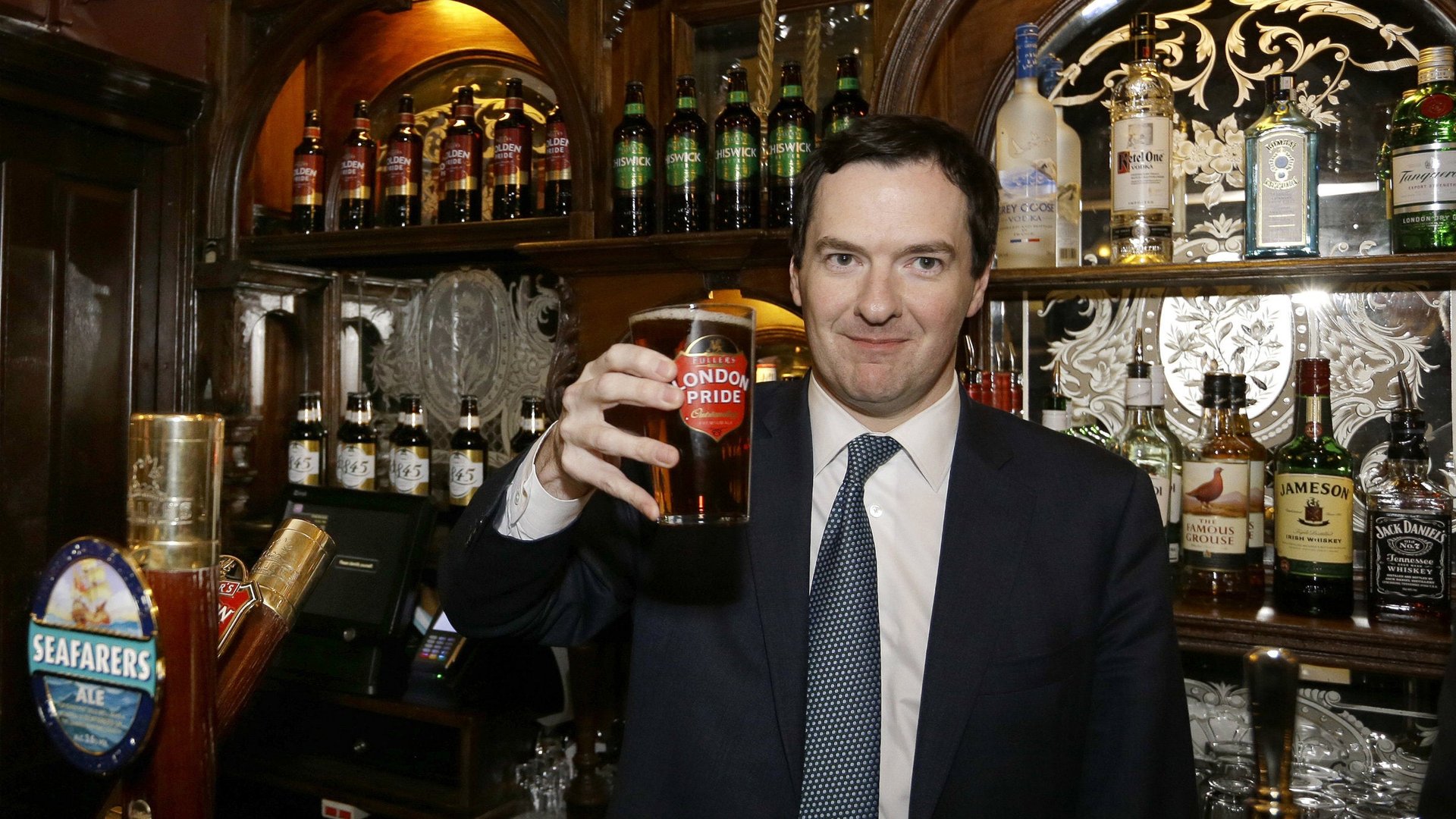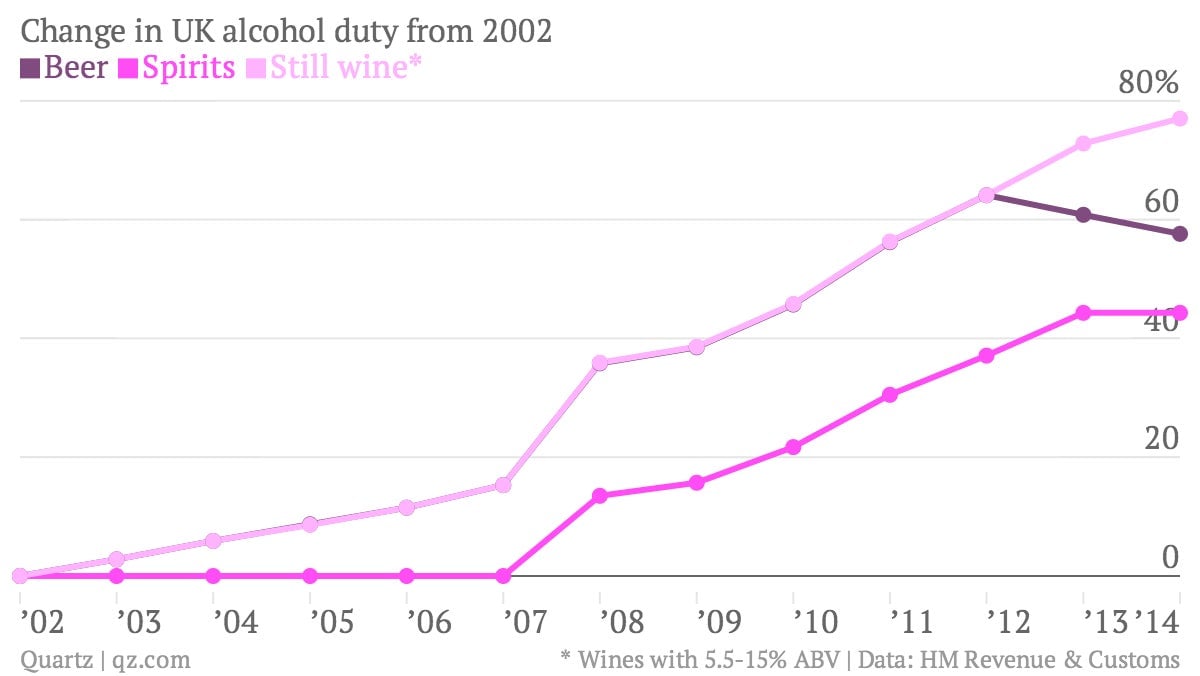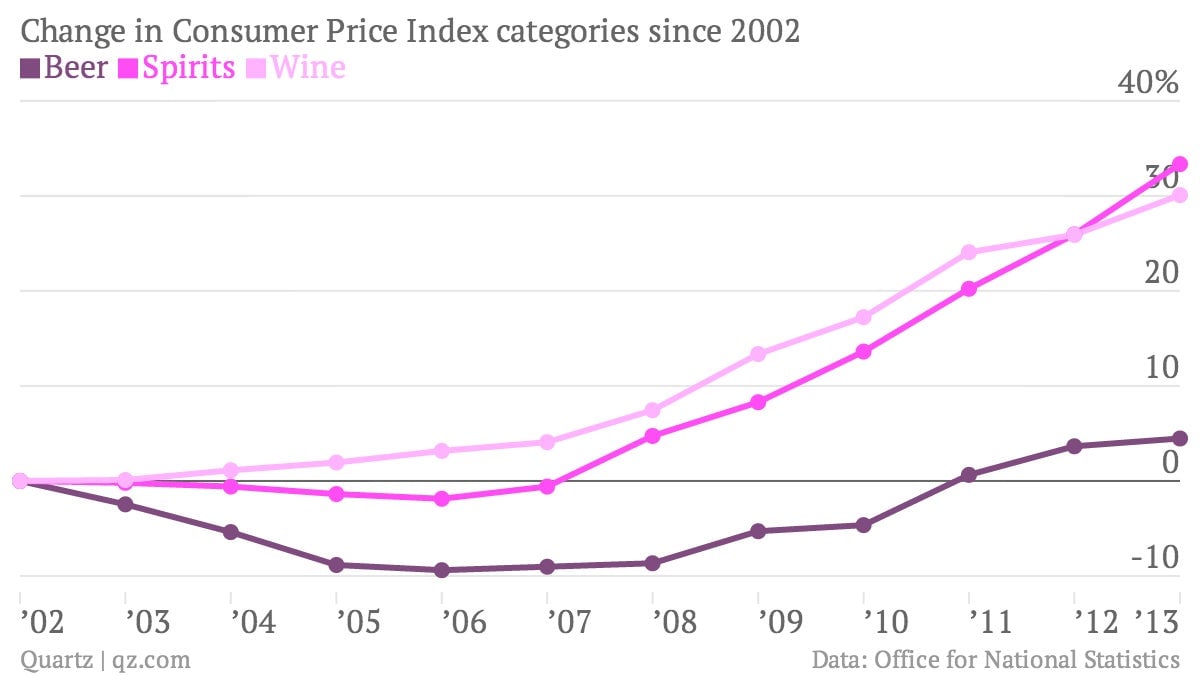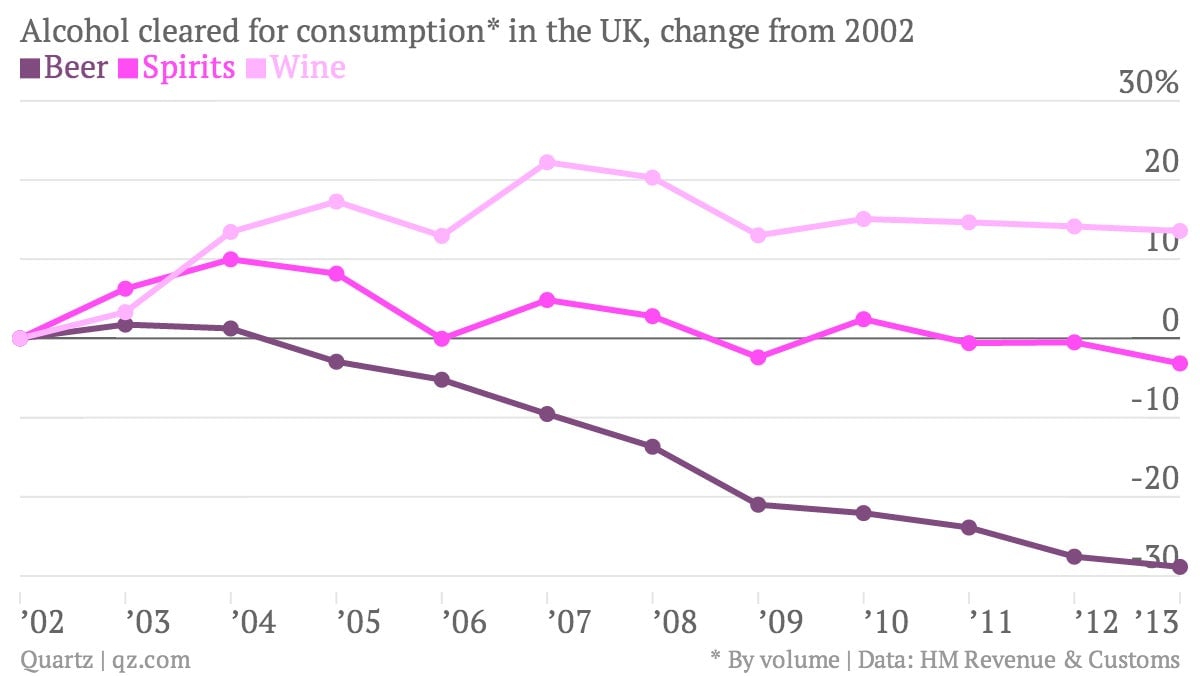Three charts that show British politicians are taxing booze all wrong
For the second consecutive year, UK chancellor George Osborne trimmed a penny off the price of a pint of beer yesterday. This largely symbolic measure, once again, grabbed just about as many headlines as the weightier but less mirthful measures announced in the government’s annual budget.


For the second consecutive year, UK chancellor George Osborne trimmed a penny off the price of a pint of beer yesterday. This largely symbolic measure, once again, grabbed just about as many headlines as the weightier but less mirthful measures announced in the government’s annual budget.
All else equal, the cut means that the average beer drinker in London will get a free pint for every 360 he drinks during the year. Of course, it’s the “optics” of the move, as pols put it, that matter. Beer is the drink of the everyman, and ministers embrace it as shorthand for their connection with common folk.
Osborne also froze duties on spirits, but taxes on wine will rise in line with inflation. In recent years the duty on wine has risen faster than the duties on beer or hard liquor, which are flat or falling:

But just because the tax on beer changes doesn’t mean beer sellers adjust the price that drinkers pay by the same amount. In fact, the average price a Brit pays for beer is barely higher than it was a decade ago, while prices on wine and spirits have risen steadily in the last few years:

The curious thing about this is that, although the British still drink more beer than any other alcoholic beverage, it looks like overall beer consumption is in long-term decline, despite the subdued price increases. Wine consumption, by contrast, is expected to rise in the coming years, accounting for a greater share of Brits’ overall alcohol intake:

Taxes now account for more than half of the cost of a bottle of wine, according to industry sources. The growing ranks of wine drinkers, despite the steeper duties, should make them an important constituency for politicians; wine accounts for nearly 60% of the alcohol English women aged 25-44 drink in a year (pdf, p. 26), for example.
Yet the political mystique of the working-class beer drinker lives on. Photo ops of ministers quaffing Merlot in wood-paneled cellars are exceedingly rare, while politicians like nothing better than to be seen necking a pint in the local pub. Lower taxes on beer and bingo “help hardworking people do more of the things they enjoy,” tweeted the Conservative party chairman after Osborne’s budget announcement. He was swiftly pilloried for being patronizing. The data suggest he’s also increasingly out of touch with the nation’s tastes in tipple.